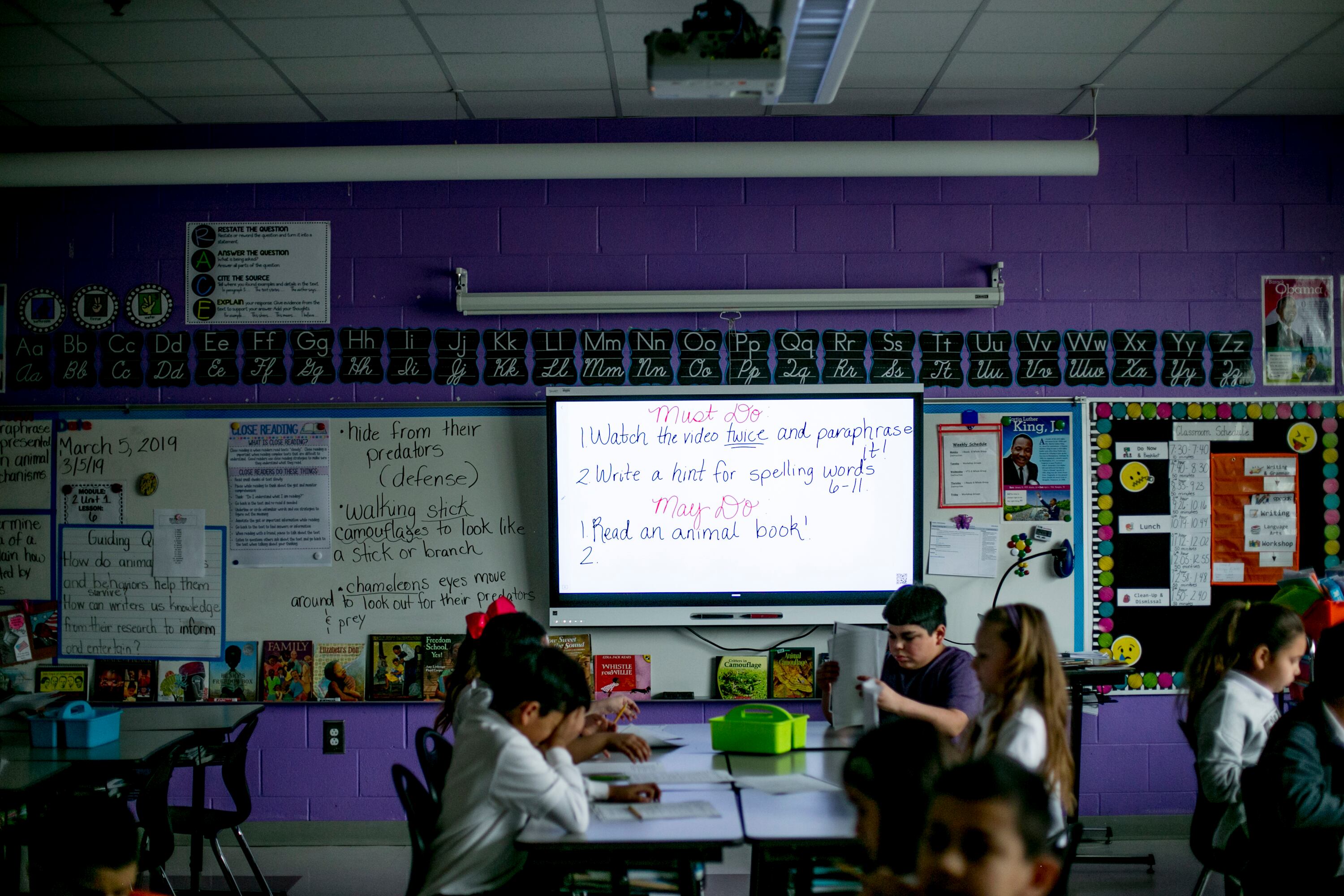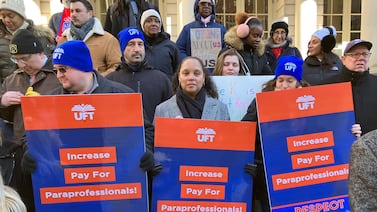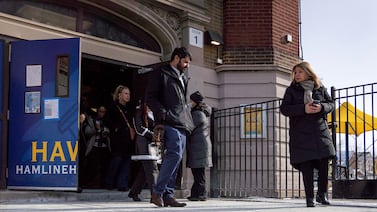Sign up for Chalkbeat Detroit’s free daily newsletter to keep up with the city’s public school system and Michigan education policy.
The Detroit school board on Tuesday tabled a $168,075 contract with Paper, an online tutoring company, to provide instruction for high school English language learners.
The move comes following concerns raised by Sonya Mays, school board member and finance committee chair, at a July 26 finance committee meeting, and after Chalkbeat Detroit highlighted the company’s questionable practices, including a previous Chalkbeat investigation that revealed how school districts across the country faced problems using Paper during the COVID pandemic.
In other districts, families and educators have complained about Paper’s quality of service, leading schools to end contracts with the company. They have said students struggled to use the mostly text-based chat platform and that tutors were working with up to four students at once.
The questions about the company’s practices and efficacy raised concerns among some Detroiters.
“I’m asking you not to vote for this contract with these people because they have a bad reputation,” longtime community activist Helen Moore said to school board members on Tuesday.
For her three-minute allotted time during the public comment period, Moore read an excerpt from the Chalkbeat Detroit article to board members.
“This is urgent,” Moore said before she began reading. “I have plenty of issues to talk about, but this one — you’re dealing with tonight.”
Sherry Gay-Dagnogo, a Detroit Public Schools Community District board member, suggested tabling the vote on Paper. The board then moved forward with a vote on the $258,750 agreement with the online tutoring company Braintrust Tutors to provide lessons for K-8 students.
“As we’re trying to strive towards establishing a stronger level of trust with the community … how we build our use of this model differently is important to our constituents,” Gay-Dagnogo said.
Other board members also worried about using a company with a mixed track record.
“We should take that in consideration when we’re trying to decide whether or not we’re going to bring them in as a vendor for our children,” said Board member Latrice McClendon.
Superintendent Nikolai Vitti said he was aware of the articles about Paper, specifically the ones published by Chalkbeat.
But he cited several safeguards that he believed could create a solid partnership with the company.
He said accountability measures were in place if the company did not hold up its end of the bargain, including monitoring the company’s progress with students, and that the district would only pay for services after they had been provided to the hundreds of English language learners in the district.
Rocky experiences that other districts had were likely related to the pandemic, Vitti said.
Paper “has been very transparent to say they scaled way too quickly during the pandemic, that districts had a lot of money and a great need with tutoring services,” Vitti said. “Obviously, districts did not know how to spend the dollars, and they often contracted with companies that over-committed to what they could provide.”
Vitti also pointed out that students would use a different person-to-person method for tutoring rather than a chat-based platform. “So students will log on during the day, and then there’ll be a tutor that also logs on and they’ll have direct engagement through computers,” he said.
Paper did not respond to Chalkbeat Detroit’s recent request for comment.
Mays said she still had concerns and that it was crucial to set the right tone given the district would soon be working with more companies as it spends additional funds from the $94.4 million dollar literacy lawsuit.
That settlement money would have paid for the Paper contract.
“The district is about to be literally bombarded with service providers because we have a big number to spend,” she said. “Many of these places are going to be unproven. As the chair of the finance committee, I’m really concerned about that, and thinking about what are our processes for making sure that we’re getting the most out of every dollar that we’re spending in this area.”
The board approved only the portion of the agreement involving Braintrust Tutors amid worries that going back to the drawing board entirely would cost English language learners too many missed lessons with the first day of school just days away.
The delay would have derailed some of the district’s efforts in expanding its program for newcomer students. Detroit schools are in the midst of enhancing that program this school year with services like online tutoring. It also is adding more English as second language teachers and designating other schools as “hub sites” to accommodate the rising number of students arriving from Latin America.
Robyn Vincent is a reporter for Chalkbeat Detroit, covering Detroit schools and Michigan education policy. You can reach her at rvincent@chalkbeat.org
This story has been updated to reflect Sonya Mays raised concerns about Paper during a July 26 DPSCD finance committee meeting. It has also been updated with information about the tutoring services Paper would have provided under the contract.







